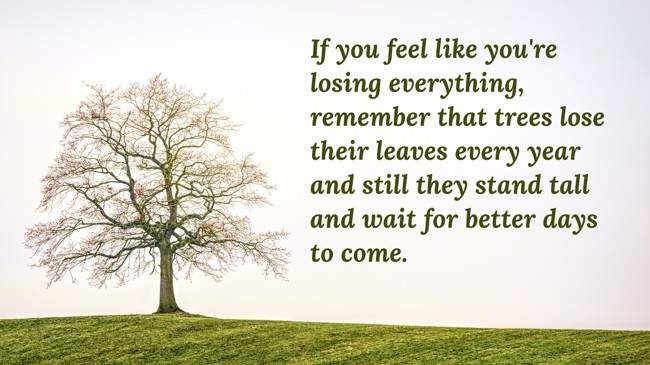When you feel like you re low on something like money you obsess over it the brain is sensitive to scarcity the feeling that you re missing something you need

When Scarcity Takes Over: The Impact of Feeling Low on Something

Feeling like you’re low on something can have a profound impact on your mental state. Whether it’s money, time, or even emotional support, scarcity triggers a unique response within the human brain. This reaction is known to affect our thinking and behavior, often leading to obsessive thoughts and behaviors centered around what we perceive to be lacking.
Researchers have delved into the concept of scarcity and how it mentally affects us. Numerous studies have highlighted the brain’s sensitivity to this feeling of missing something essential. Scarcity, in essence, creates a sense of urgency and prioritization within our minds. Our brain goes into overdrive, focusing our attention on the perceived deficiency and making it the center of our thoughts.
A study conducted at Princeton University revealed that scarcity not only occupies our thoughts but also hinders our cognitive abilities. When people experience scarcity, be it financial or otherwise, they tend to perform poorly in tasks that require logical reasoning and decision-making. The brain’s preoccupation with what is lacking leaves fewer mental resources available for other cognitive processes, resulting in decreased overall performance.

Furthermore, scarcity can create a vicious cycle. The feeling of lack often leads to impulsive and short-sighted decision-making. When faced with limited resources, individuals tend to favor immediate gratification over long-term planning. For instance, someone struggling with financial scarcity might be more inclined to make impulsive purchases, seeking temporary relief from the stress of lacking funds but potentially worsening their financial situation in the long run.
Interestingly, scarcity not only affects our behavior but also alters our perception. A study published in the Journal of Consumer Research found that people who felt scarcity tended to perceive certain objects as more valuable than they actually were. In a scarcity mindset, an item becomes more desirable solely due to its limited availability, even if it holds no inherent value. This understanding sheds light on how scarcity impacts our decision-making processes, often leading us to make irrational choices driven by our fear of lacking.
The impact of scarcity extends beyond the personal realm; it also affects how we view and interact with others. People experiencing scarcity tend to become more self-focused and less likely to engage in pro-social behaviors. When consumed by the feeling of lacking something essential, our instinct for survival often takes precedence over acts of kindness or generosity towards others. Scarcity creates a mindset that individuals can only look out for themselves, diminishing empathy and cooperation.
In conclusion, the brain’s sensitivity to scarcity is a fascinating aspect of human psychology. When you feel like you’re low on something, such as money, time, or emotional support, the brain becomes obsessed with this perceived scarcity. It affects our thinking, decision-making capabilities, and overall behavior. Scarcity can lead to impulsive choices, altered perception, and a self-focused mindset. Understanding the impact of scarcity on our mental state helps us navigate its effects and strive for a more balanced approach to availability and resource management.
Source: NPR - How Scarcity Mentally Affects Our Thinking and Behavior
Share
Related Posts
Quick Links
Legal Stuff

